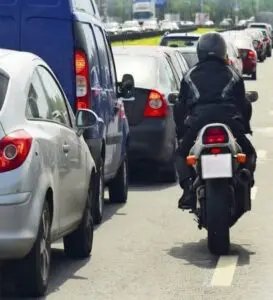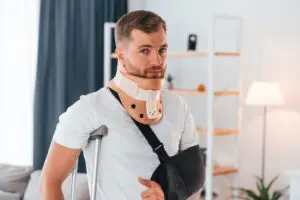What Is a Duty of Care?
A Duty of Care is the obligation to act with care and prudence toward others and the public, as a reasonable person would in similar circumstances. Failure to meet this standard may lead to negligence claims and subsequent damages. This concept is fundamental in various fields, including law, medicine, and business, where individuals or professionals are expected to act in a way that prevents foreseeable harm to others. Essentially, it mandates that one must exercise caution and consideration to avoid causing harm or injury to others.
According to the ruling in Donoghue v Stevenson (1932), “You must take reasonable care to avoid acts or omissions which you can reasonably foresee would be likely to injure your neighbor.” This principle has since become a cornerstone in tort law, influencing how negligence cases are determined.
In practice, duty of care requires individuals to anticipate risks that their actions or inactions might pose to others and take reasonable steps to mitigate those risks. For instance, in healthcare, doctors owe a duty of care to their patients to provide treatment that meets accepted medical standards, ensuring patient safety and well-being. Understanding the duty of care helps ensure that individuals and organizations prioritize the well-being of others, thereby reducing the occurrence of preventable harm.
More information about Duty of Care
Pennsylvania Product Liability Lawyer
Consumers have a reasonable right to expect their products to be safe to use as advertised. Product liability law protects consumers hurt by unsafe products and holds negligent manufacturers and retailers accountable. If you’ve suffered an injury or illness because of a dangerous product, a Pennsylvania product liability lawyer at Munley Law can help you get the justice you deserve. We have successfully handled numerous cases against industrial manufacturers, automotive companies, medical device makers, and other big companies whose products caused harm.
Contact us today for a free consultation. We do not get paid unless we win your case.
What Is a Product Liability Claim?
 A product liability claim is a legal claim brought against a product manufacturer, distributor, supplier, or retailer that caused a consumer injury or harm due to a defect or failure in the product. These claims are based on the principle that manufacturers and sellers must ensure their products are safe. […]
A product liability claim is a legal claim brought against a product manufacturer, distributor, supplier, or retailer that caused a consumer injury or harm due to a defect or failure in the product. These claims are based on the principle that manufacturers and sellers must ensure their products are safe. […]
More information about Duty of Care
Do Pedestrians Always Have the Right of Way?
When you first learned to drive, you may have been told pedestrians have the right of way. While this is generally true, pedestrians don’t always have the right of way. Of course, drivers must always be aware of their surroundings, including looking for pedestrians, but pedestrians must also be aware of traffic lights, crosswalks, and oncoming traffic.
If you were involved in a pedestrian accident and are questioning who has the right of way, Munley Law is here to help.
When Do Pedestrians Have the Right of Way?
Under Pennsylvania law, there are a few scenarios where pedestrians always have the right of way. However, it is ultimately the responsibility of drivers and pedestrians to practice safety on the roadways and be mindful before walking into traffic.
Crosswalks Without Signals
 If a pedestrian is at an unmarked crosswalk without traffic signals, […]
If a pedestrian is at an unmarked crosswalk without traffic signals, […]
More information about Duty of Care
Is Lane Splitting Legal in Pennsylvania?
Have you ever been driving through a congested area and noticed a motorcyclist weaving in and out of traffic? While many motorcyclists think lane splitting should be common practice, it is currently illegal under Pennsylvania law.
If you are involved in a motorcycle accident and have been lane splitting, or hit a motorcyclist due to lane splitting, it can impact your personal injury claim.
What Is Lane Splitting?
Lane splitting, also known as white lining, occurs when a motorcyclist drives between two rows or lanes of traffic. Most commonly, riders split lanes when traffic is moving slowly or at a standstill. Lane splitting can occur on any type of road, including highways or rural roads.
 Lane splitting is not the only traffic maneuver you may see a biker make. Other practices include:
Lane splitting is not the only traffic maneuver you may see a biker make. Other practices include:
- Lane filtering: The rider moves between stopped traffic or slow-moving traffic
- Lane sharing: Multiple motorcyclists share the same lane and ride beside each other in a close formation
- Shoulder surfing: When a rider drives on the shoulder of the road
A University of California, […]
Read MoreMore information about Duty of Care
Harrisburg Product Liability Lawyer
 Consumers have the right to expect the products they buy with their hard-earned money are safe and reliable. When a defective product causes an injury (and in many cases, a catastrophic injury) the results can be devastating. In these cases, the injured person may have a valid products liability claim against the product manufacturer, distributor, or retailer responsible for putting the dangerous product on the market.
Consumers have the right to expect the products they buy with their hard-earned money are safe and reliable. When a defective product causes an injury (and in many cases, a catastrophic injury) the results can be devastating. In these cases, the injured person may have a valid products liability claim against the product manufacturer, distributor, or retailer responsible for putting the dangerous product on the market.
If you or a loved one were injured by a dangerous product, call the Harrisburg products liability lawyers at Munley Law today. During a free initial consultation, our defective product attorneys will breakdown what your product liability case will look like and outline our legal strategy to secure a settlement or verdict in your favor.
What Is a Product Liability Claim?
A product liability claim is a legal action taken against any or all parties along the chain of manufacture of any product for damage caused by the product. […]
Read MoreMore information about Duty of Care
Harrisburg Personal Injury Lawyer
If you’re in Harrisburg and need a personal injury lawyer, you’re looking for someone to help you get back on your feet after a Central Pennsylvania accident. Experienced personal injury lawyers in Harrisburg are dedicated accident attorneys who support you during tough times, ensuring you receive the care and maximum compensation you deserve.
after a Central Pennsylvania accident. Experienced personal injury lawyers in Harrisburg are dedicated accident attorneys who support you during tough times, ensuring you receive the care and maximum compensation you deserve.
Why Should I Hire a Harrisburg Personal Injury Lawyer?
Hiring Harrisburg personal injury attorneys can make a big difference in how your case is handled and the outcome you achieve. A Dauphin County lawyer understands the community and has experience dealing with local insurance companies and courts. They can handle the legal system efficiently, gather evidence, negotiate with insurance adjusters, and advocate for your best interests.
By hiring a Harrisburg personal injury lawyer, you can increase your chances of receiving fair compensation for medical bills, lost wages, and other injury-related costs. […]
Read More








